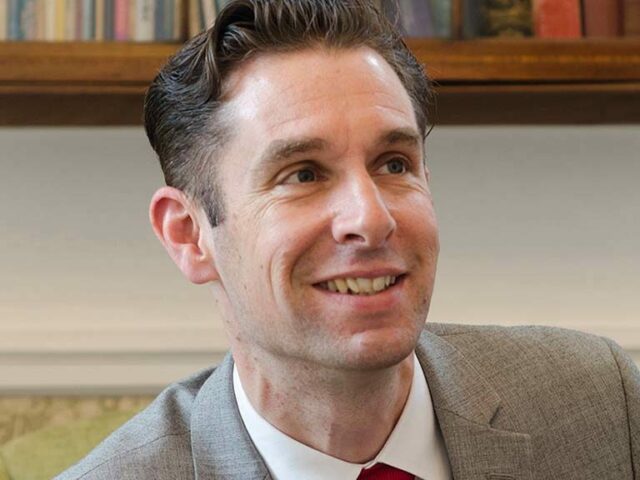Blog
PQX – let’s not rush it through without thinking

Nick Weaver
HMC/GSA Universities Sub-Committee Co-Chair 2020/21 and Headmaster, Ipswich School
Read the blog
So the Secretary of State for Education has said that the Government is going to deliver Post Qualifications Admissions before the next election. He is clear that places should be awarded on actual grades rather than the current system of offers based on applications which, among other data, have teachers’ predicted grades for each applicant.
As the Co-Chair of the HMC/GSA Joint Universities Sub-Committee, I welcome the review of universities admissions. As a group, we have been keen to work with UCAS, with universities and with other associations to tackle much of what we agree is not good about the current admissions process. Above all, we support the principles, set out in the Universities UK review document, of fairness and transparency, echoing those set out in the earlier, 2004 Schwartz Review, centred on the applicant’s interest.
But of course, as the Secretary of State will no doubt remember from the public examination results of summer 2020, alternatives to teachers’ predicted grades may themselves generate unforeseen problems. So we all hope that there will be extensive and meaningful consultation with those who will be directly involved in implementing any new system, in order that unintended consequences, which may have greater effect than any problems with the current system, are avoided.
Some of the issues which our Sub-Committee have been exercised about in recent years are centred around the ‘offer high, accept low’ culture we have seen. To put this simply, some university courses are advertised as needing a certain level of A level attainment, say AAB, for an applicant to be admitted. Students who are predicted these grades and who attain them find that when they start at university, they are alongside other students who have achieved a more modest BBB, say, having missed their predicted grades and offer, but then being admitted nonetheless. Nobody seems to like this situation – universities point the finger at teachers for ‘over-predicting’ and teachers point at the universities for inflating their ‘sticker price’ to make the course seem more prestigious whilst ‘selling’ the places at a discount in order to get fee paying students to enrol. The fact is that the system encourages such inflation.
In a time when demographics mean that the number of 18 year olds has hit a low point (it starts to rise again this year) we have seen more ways in which universities have been keen to assure a full complement of recruits. ‘Conditional unconditional’ offers – essentially “put us first choice and we’ll let you in with any grades” – have been clamped down on this year by Government, but there is a general feeling that the playing field is not level.
This is a particular worry for all of us who want to see wider participation in higher education across all socio-economic groups. HMC schools have a strong tradition of supporting disadvantaged students through our bursary schemes, with great success, seeing them gaining entry to Higher Education. We are proud of the part that we play in widening participation. However, there is a feeling that across all school settings, many of those from more disadvantaged backgrounds often find themselves with less confidence and understanding of the ‘rules of the game’, and hence, perhaps, their choices are limited. Even with great ambition, there is evidence that some groups are more likely to have grades under-predicted, and therefore they are limited in how high they may aim with their applications.
All of this will be solved, seemingly self-evidently, if you apply to university once you have your actual exam results. Or, possibly, there is a system where you don’t receive any offers of a place from your chosen universities until you have your actual exam results. Those people who achieve more highly in the summer than their teachers might have predicted in November will now be able to see their true value from their real results and apply to appropriately ambitious universities.
I do hope we can find a PQA (Post Qualifications Admissions) system that works to overcome all of the current shortcomings. But we must be so careful that it does not introduce new and more complicated shortcomings instead. And this is why it must be thought through carefully and not rushed through as a political imperative, come what may.
Here are just some of the issues which are important. First, support for applicants. Who is going to give advice and support for applicants after their exam results are published? Because these students will have left school. Currently, in Sixth Forms up and down the country, HE advisers are working with Year 13 students on their applications, reading personal statements, helping them to narrow down their selection of universities and supporting them when they get their exciting offers or disappointing rejections. Are schools going to be able to support those who have left already, in the months after August? Many schools will, I know, but who will fund this provision, and if it is unfunded, what else will suffer in those schools? How will ‘Year 14’ school leavers come back for the advice?
There are plenty of disadvantaged students who find themselves in very difficult home situations. It is hard enough, currently, for these students to be at home from June, when their exam leave starts, through to October, when they commence university. How will we support these same students for another three months in their difficult homes, in a time when they also have to make their university applications, make ends meet and survive, before a January university start?
Second, how will we manage applications to the most selective courses? Currently Medics, Vets and Dentists, plus applicants to Oxford and Cambridge have to apply by 15 October, in order that interviews and pre-tests can run their course. How will this work in the compressed timescale of a PQA system? Remember that the Government funds each Medical Student to the tune of around £0.25M. Selecting these students is important and takes time. Currently, great strides are being made in widening participation on these courses, and we welcome the expansion in numbers we have seen this year. But even in the much referenced PQA systems of other countries, there are pre-qualification tests for the most selective courses. How will we accommodate these in a new system? Has this even been thought about by the Department?
Thirdly, the reliance on actual results. The Interim Chief Regulator of Ofqual Glenys Stacey has confirmed that A level results are only correct to within one grade either way. If we award places solely on the A level results achieved, then would it be too much for us to demand greater confidence in the accuracy of these grades? This is something that HMC has been lobbying for for many years.
There is much talk that a new system could be in place for applicants for places in 2023 (or will that be January 2024?). Bear in mind that this is the cohort due to take their GCSE exams this summer; we are far from sure that they will be able to take exams, or what the system will be in place for awarding their GCSE grades fairly if they have been disadvantaged by the current pandemic. Maybe that is a good reason to give this cohort a new system for university admissions, but they deserve it to be really good, given what they will have been through this year.
Finally, and perhaps my most heartfelt wish for a new system, is that we never lose sight of the individuality of the students and the universities to which they apply. The more admissions becomes transactional, and tariff based, and the less it is about the matching of individual people to the place and the course that suits them best, the worse it will be. Universities well understand that students are people – their personal statements and the descriptions of them in the school reference attest to their individuality. Students also know that each university is different and some may be a better fit for them than others. They may ‘qualify’ to go to one university, but the course does not focus on their area of interest, or they may prefer campus over a city setting, for example. It is a deeply personal, individual and life-changing choice, to go and study a subject you love in such depth for three years or more and we need to make sure that the system that surrounds that choice is the best that it can be for everyone.


